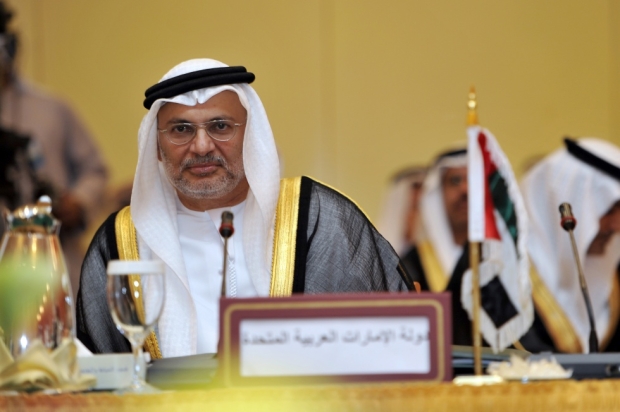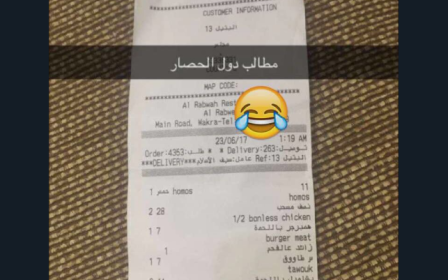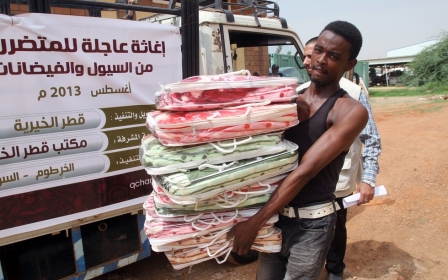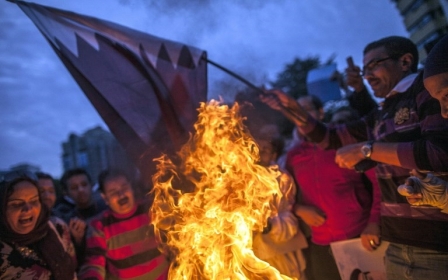Qatar says Saudi-led demands not 'reasonable' and is preparing response
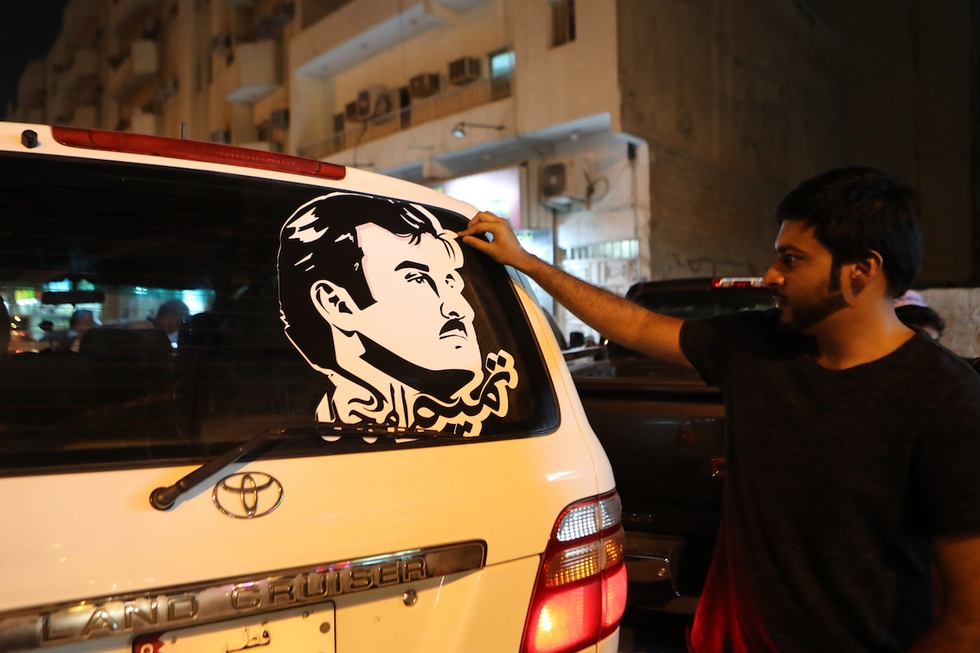
Qatar said on Saturday that a 13-point list of demands made by Saudi Arabia and its allies impinged on its sovereignty and failed to meet US expectations they be "reasonable".
The four Arab governments delivered the demands to Qatar through Kuwait on Thursday, more than two weeks after severing all ties with the emirate and imposing an embargo.
The document has not been published but has been widely leaked and the demands are sweeping in their scope.
They require Doha to join Riyadh and its allies in outlawing the Muslim Brotherhood, which it has long supported.
They also require it to close Iran's embassy and a base on its territory operated by its ally Turkey, as well as to shut Al-Jazeera television.
The media organisations the petition claims are "supported" by Qatar include Arabi21, al-Araby al-Jadeed, Sharq and the London-based Middle East Eye.
Qatar has 10 days to accept the demands, it said.
David Hearst, Middle East Eye's editor-in-chief, said his organisation is not funded by Qatar - or any other state or group - and is here to stay.
"Middle East Eye is independent of any government or movement and is not funded by Qatar," he said.
"Maybe the fate of Al Jazeera will depend on talks between the government of Qatar and its neighbours. But Middle East Eye is here to stay.
"MEE covers the area without fear or favour, and we have carried reports critical of the Qatari authorities, for instance how workers from the subcontinent are treated on building projects for the 2022 World Cup."
Qatar is also required to end all contacts with opposition groups in the four countries - Bahrain, Egypt, Saudi Arabia and the United Arab Emirates.
This blockade is not aimed at fighting terrorism but at impinging on Qatar's sovereignty and interfering in its foreign policy
- Sheikh Saif bin Ahmed Al-Thani, Qatari government spokesperson
In Qatar's first response to the demands, government communications director Sheikh Saif bin Ahmed Al Thani said on Saturday that they went far beyond the four governments' stated aim of combating terrorism.
"This blockade is not aimed at fighting terrorism but at impinging on Qatar's sovereignty and interfering in its foreign policy," Sheikh Saif said.
He recalled that US Secretary of State Rex Tillerson had said on Wednesday that Washington wanted a clear list of grievances that was "reasonable and actionable".
This list "does not meet those standards," he said.
Qatar reviewing response
Saudi Arabia and its allies have put enormous pressure on Qatar to meet their demands.
The Qatari foreign ministry said it was preparing its response, according to Al-Jazeera.
"The state of Qatar is currently studying this paper, the demands contained therein and the foundations on which they were based, in order to prepare an appropriate response to it and hand it over to the state of Kuwait," the Qatar News Agency said, citing a statement by the Ministry of Foreign Affairs.
The UAE state minister for foreign affairs, Anwar Gargash, warned on Friday that Qatar should "deal seriously" with the 13 points or face "divorce" from its neighbours.
He said if Qatar did not accept its ultimatum, "the alternative is not escalation but parting ways".
The most powerful Middle Eastern country to stand with Qatar in the dispute has been Turkey, which has rushed through legislation to send more troops to its base in Doha as a sign of support.
Two contingents of Turkish troops with columns of armoured vehicles have arrived in Doha since the worst crisis among Gulf Arab states for years erupted on June 5.
Gargash said the Turkish deployment was a "meaningless escalation" and he hoped Ankara would act in a "reasonable way".
"We hope that Turkey prioritises the interest of the Turkish state and not partisan ideology," Gargash said.
The rift between the US Gulf allies has been awkward for Washington.
Tillerson has sought to mediate but the White House has been more hands-off, describing the diplomatic crisis as a "family issue" on Friday.
The media organisations the UAE has demanded be closed down include Arabi21, al-Araby al-Jadeed, Sharq and the London-based Middle East Eye.
David Hearst, Middle East Eye's editor-in-chief, said his organisation is not funded by Qatar - or any other state or group - and is here to stay.
"Middle East Eye is independent of any government or movement and is not funded by Qatar," he said.
"Maybe the fate of Al-Jazeera will depend on talks between the government of Qatar and its neighbours. But Middle East Eye is here to stay.
"MEE covers the area without fear or favour, and we have carried reports critical of the Qatari authorities, for instance how workers from the subcontinent are treated on building projects for the 2022 World Cup."
New MEE newsletter: Jerusalem Dispatch
Sign up to get the latest insights and analysis on Israel-Palestine, alongside Turkey Unpacked and other MEE newsletters
Middle East Eye delivers independent and unrivalled coverage and analysis of the Middle East, North Africa and beyond. To learn more about republishing this content and the associated fees, please fill out this form. More about MEE can be found here.


